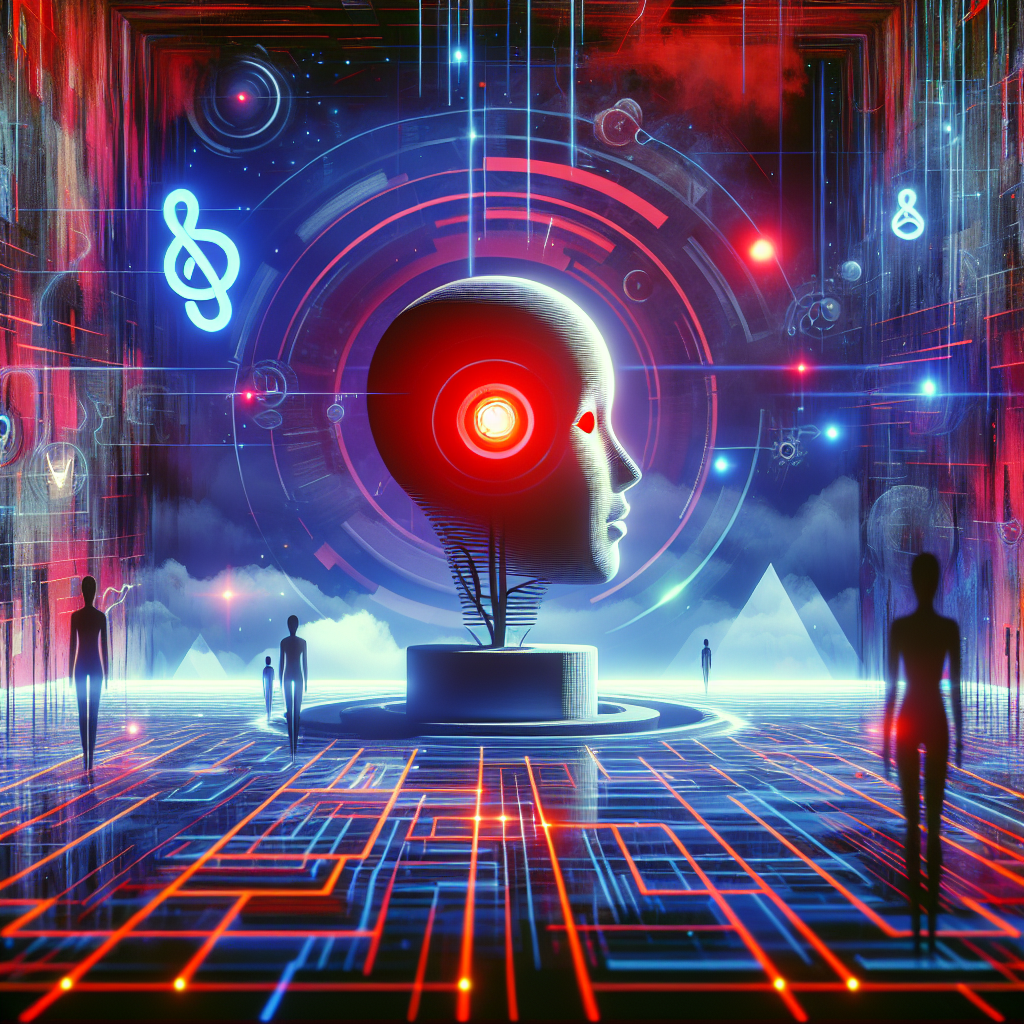Error en la Matrix: Users of ChatGPT are reporting glitches in the AI platform. Thousands of users have reported being unable to access their ChatGPT accounts, with the platform asking them to try again later. This widespread issue with OpenAI's chat-based AI system has caused frustration among users who are unable to log in or use the service as usual. The AI service, which is even used on Wall Street, has been experiencing intermittent problems, with Downdetector recording thousands of reports of outages. While some users have managed to regain access to their accounts, the conversation history is not available, and the platform continues to experience high demand and system errors. Despite the disruptions, OpenAI and ChatGPT have yet to issue any statements regarding the ongoing service disturbances.
Error en la Matrix: Usuarios de ChatGPT reportan fallas en la plataforma de IA

Overview
ChatGPT, the popular artificial intelligence-based chat system developed by OpenAI, is currently experiencing technical issues, with thousands of users reporting difficulties accessing their accounts and using the platform. The problems with ChatGPT have a global impact, affecting users in various countries such as the United States, the United Kingdom, Israel, and Canada. The platform's response to the issues has been limited, and OpenAI has remained silent on the matter. Additionally, the controversy surrounding OpenAI's leadership and potential mass resignation of employees has contributed to the uncertainty surrounding the future of the platform. These recent developments in the AI industry have the potential to impact the responsible development of AI technology and create competition among tech companies for AI talent.
User Complaints
Users of ChatGPT have reported several issues with the platform, including the inability to access their accounts, difficulty using the services, error messages, and loss of conversation history. The problems seem to be widespread, affecting a significant number of users and hindering their ability to utilize the AI-based chat system effectively.
Scope of the Issue
The technical issues with ChatGPT have a global impact, with users from various countries experiencing difficulties. The problems started around 15:45 on November 21, 2023, and have persisted for several hours. The number of affected users is significant, with thousands of reports indicating failures in the platform's functionality. The failures can be categorized into two types: general service failures and issues with logins on mobile devices and the website.
Downdetector Reports
Downdetector, a platform where users register issues they encounter with different online services, has recorded numerous reports related to ChatGPT's technical problems. In the United States alone, there have been around 2,700 reports of failures with the platform. The issues have also been reported in other countries, including the United Kingdom, Israel, and Canada.

ChatGPT's Response
ChatGPT has acknowledged the technical issues and attributed them to a high demand for the service. The platform's limited system functionality is a result of the exceptional demand, causing intermittent access to user accounts and unavailability of conversation history. An official message from ChatGPT states that they are working to expand their systems, but no specific timeline for resolution has been provided.
Experiencing High Demand
The surge in demand for ChatGPT's services has overwhelmed the system, resulting in limited accessibility for users. While some users have managed to access their accounts, the conversation history feature remains unavailable. A message notifying users about the high demand and asking for patience has been displayed when attempting to initiate a conversation with the platform.
OpenAI's Silence
OpenAI, the company behind ChatGPT, has remained silent regarding the technical issues users are facing. There has been no official response or statement from OpenAI about the problems with ChatGPT or any plans for resolving them. The lack of communication from the company has left users frustrated and concerned about the future reliability of the platform.
OpenAI Employees Threaten Mass Resignation
A significant number of OpenAI employees have threatened to resign and join Microsoft unless the current board members step down. The demand for the resignation of the board and the reinstatement of Sam Altman, the former leader of OpenAI, has created uncertainty about the future of the company. Over 700 employees have signed a letter expressing their dissatisfaction with the current leadership and stating that they cannot work with individuals lacking competence, judgment, and care for the company's mission and employees.
Demand for Sam Altman's Return
The employees' letter also emphasizes the demand for Sam Altman's return to OpenAI. Altman was previously dismissed due to disagreements with the board regarding the pace of AI development and monetization. The employees see Altman's reinstatement as crucial to the company's future and have indicated that they would consider joining Microsoft, as the company has assured them that there are positions available for all OpenAI employees.
Potential Shift to Microsoft
The threat of mass resignation from OpenAI employees has raised the possibility of a significant shift of talent to Microsoft. The tech giant has already hired Altman and the co-founder of OpenAI, Greg Brockman, to lead a new internal AI team. This potential shift in talent could have wide-ranging implications for both OpenAI and the AI industry as a whole.
Potential Impact on the AI Industry
The current issues with ChatGPT and the unrest among OpenAI employees have the potential to impact the AI industry in several ways. OpenAI's reputation may suffer due to the technical problems and lack of communication, potentially leading to a loss of trust from users and investors. The tension within OpenAI also highlights the challenges of balancing responsible development of AI technology with the need for financial support. The potential exodus of talent from OpenAI to other companies, such as Microsoft, could create hiring competition in the AI industry, further intensifying the race for AI talent.
In conclusion, the technical issues with ChatGPT and the ensuing controversy at OpenAI have created uncertainty and raised questions about the company's future. The impact of these developments extends beyond ChatGPT itself and could have implications for the responsible development of AI technology and competition among tech companies for AI talent. It remains to be seen how OpenAI will address these challenges and regain the trust of its users and employees.



